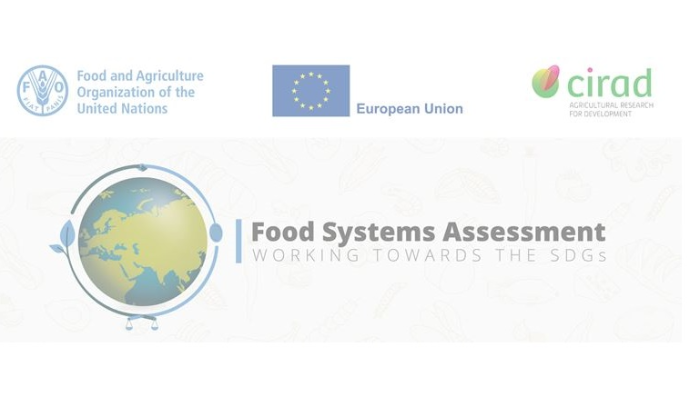NNA - The Results of a food system assessment in Lebanon have just been released. They show that:
The food system in Lebanon has long faced a myriad of challenges derived from the country’s historic, economic, political and social context:
-cultivated lands in Lebanon cover less than 25 percent of the country’s surface and there are approximately 170 000 farm holdings, of which the 25 percent of their production is primarily for subsistence;
- land ownership is characterized by substantial inequality and fragmentation; one percent of landowners control approximately a quarter of total agricultural land surface, while 10 percent control around two-thirds of the agricultural land;
- informal labour accounts for a significant proportion of workers within the food sector;
- heavily dependent on imported inputs, seeds, materials and equipment, resulting in high production costs for agriculture and the agrifood industry, which significantly affects the food system;
- such imports are dominated by an oligopolistic structure, which benefits only a few actors;
- additionally, highly dependent on imports for consumption: approximately 80 percent of calories consumed are imported; and
- local production (excluding exports) is insufficient to meet the country’s food needs.
The situation is exacerbated by a number of ongoing dynamics, which pose further significant challenges:
- Following the 2019 crisis, poverty rates have nearly doubled to more than 50 percent of the population in 2020. A third of people are unemployed and two thirds of Lebanese households had to deal with reduced income.
- The drop in consumer purchasing power due to hyperinflation and currency devaluation has had dramatic consequences for nutritional intakes. Diets have shifted to cheaper and less nutritious food, leading to malnutrition, lack of diversity and a higher incidence of obesity in both rural and urban areas, now afflicting 32 percent of adults.
- Food safety regulations are inadequate;
- High use of pesticides, absence of adequate testing labs or testing procedures, and limited distribution channels restrict exports and undermine food safety;
- Inadequate, inefficient and unsustainable land use and management practices, and water resource management is adversely affecting the sustainability of the food system, which, in turn is increasing the country’s vulnerability to climate change; and.
- Lack of coordination among public (and non-public) actors enables some food producers, distributers and importers to act with impunity, taking advantage of the situation to supply non-safe foods.
The assessment was part of a joint initiative launched by the European Union (EU), the Food and Agricultural Organization (FAO), and the French research centre for agricultural development, CIRAD. Its purpose was to identify key constraints and entry points for innovative policy and investment solutions to make food systems more sustainable and inclusive.
"In the current context of the multifaceted crisis, exacerbated by the impact of the war in Ukraine on food and energy prices, agri-food system can be transformed through better monitoring of food security and nutrition outcomes, improving smallholder farmers’ investment capacities, adoption of sustainable agriculture practices and strengthening of cooperatives and collective action", says Nora Ourabah Haddad, FAO Representative in Lebanon.
Food systems as currently operating are unable to fulfil their purpose of providing nutritious and healthy food for all and contributing to enhanced livelihood opportunities in an environmentally sustainable way. They are being challenged by several factors, including changing diets, technology, urbanization and climate change. There may be enough food to potentially feed everyone - preventing the dual health burdens of malnutrition and obesity-, however, the economic and territorial imbalances are such that food systems do not generate fair economic returns for all actors, particularly for small-scale producers, triggering an endless cycle of precariousness and poverty. They need transforming if we are to achieve the Sustainable Development Goals.
Using a holistic approach, the assessment gathered a wide range of food system actors in Lebanon through a consultation process during which they shared views on key issues and challenges and analyzed potential solutions. The results of this consultation process are presented in the country profile just published. It will serve as a basis to prioritize interventions in key areas of the food system.
============










